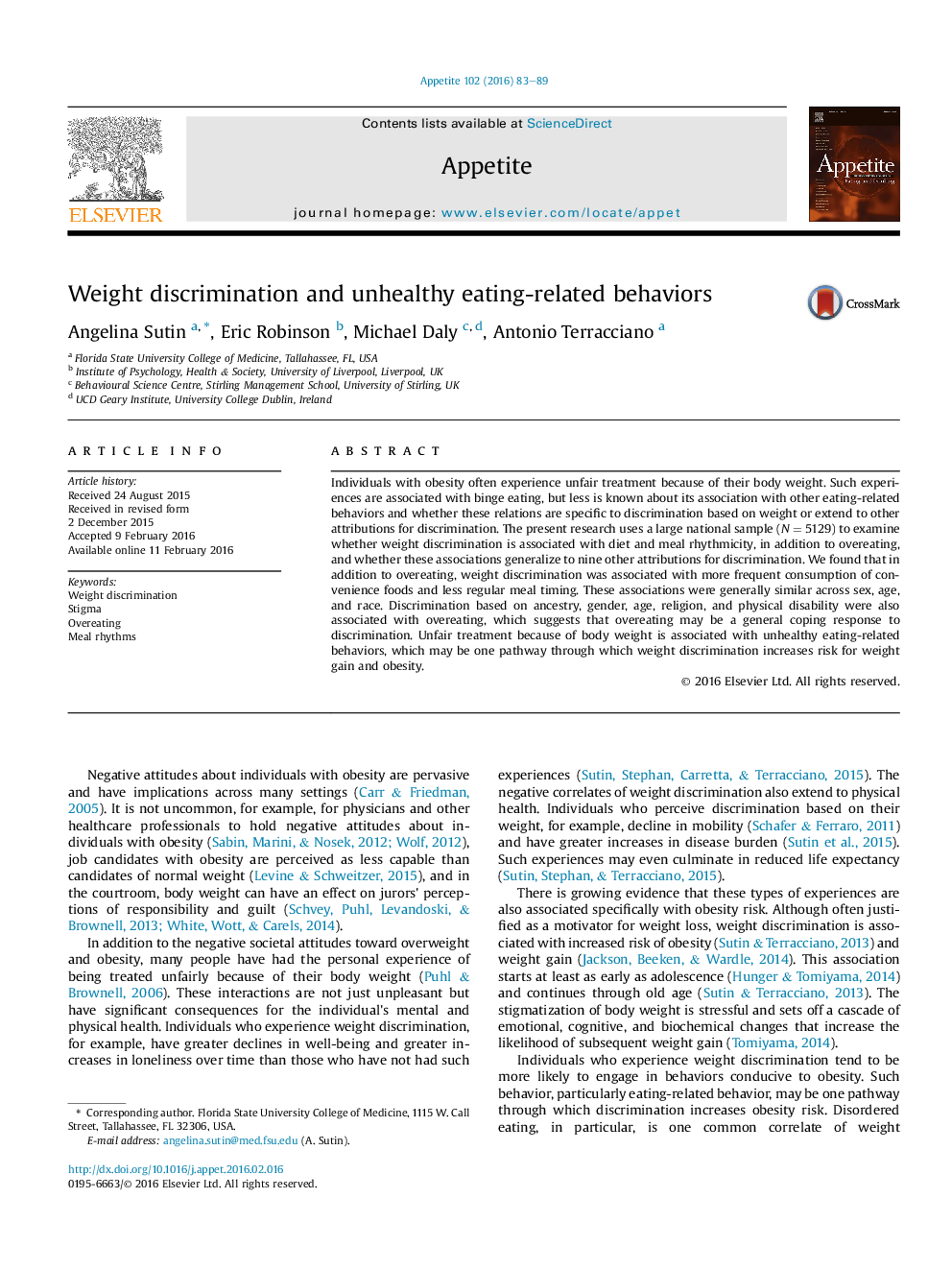| کد مقاله | کد نشریه | سال انتشار | مقاله انگلیسی | نسخه تمام متن |
|---|---|---|---|---|
| 939278 | 1475378 | 2016 | 7 صفحه PDF | دانلود رایگان |
Individuals with obesity often experience unfair treatment because of their body weight. Such experiences are associated with binge eating, but less is known about its association with other eating-related behaviors and whether these relations are specific to discrimination based on weight or extend to other attributions for discrimination. The present research uses a large national sample (N = 5129) to examine whether weight discrimination is associated with diet and meal rhythmicity, in addition to overeating, and whether these associations generalize to nine other attributions for discrimination. We found that in addition to overeating, weight discrimination was associated with more frequent consumption of convenience foods and less regular meal timing. These associations were generally similar across sex, age, and race. Discrimination based on ancestry, gender, age, religion, and physical disability were also associated with overeating, which suggests that overeating may be a general coping response to discrimination. Unfair treatment because of body weight is associated with unhealthy eating-related behaviors, which may be one pathway through which weight discrimination increases risk for weight gain and obesity.
Journal: Appetite - Volume 102, 1 July 2016, Pages 83–89
